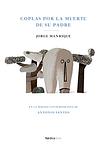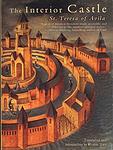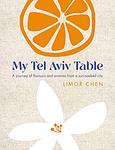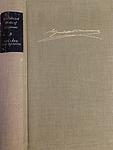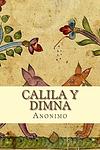The Greatest Czech, Italian, Spanish "Allegorical" Books of All Time
Click to learn how this list is calculated.
This list represents a comprehensive and trusted collection of the greatest books. Developed through a specialized algorithm, it brings together 305 'best of' book lists to form a definitive guide to the world's most acclaimed books. For those interested in how these books are chosen, additional details can be found on the rankings page.
Genres
Allegorical books are a genre of literature that use symbolic characters, events, and settings to convey a deeper meaning or message. These stories often have a moral or philosophical lesson that is meant to be interpreted by the reader. Allegories can be found in many different types of literature, including novels, short stories, and poetry. They are a powerful tool for exploring complex ideas and emotions, and can be used to comment on social, political, or religious issues. Overall, allegorical books are a thought-provoking and engaging genre that challenges readers to think critically and reflect on the world around them.
Countries
Date Range
Reading Statistics
Click the button below to see how many of these books you've read!
Download
If you're interested in downloading this list as a CSV file for use in a spreadsheet application, you can easily do so by clicking the button below. Please note that to ensure a manageable file size and faster download, the CSV will include details for only the first 500 books.
Download-
1. The Divine Comedy by Dante Alighieri
In this epic poem, the protagonist embarks on an extraordinary journey through Hell (Inferno), Purgatory (Purgatorio), and Paradise (Paradiso). Guided by the ancient Roman poet Virgil and his beloved Beatrice, he encounters various historical and mythological figures in each realm, witnessing the eternal consequences of earthly sins and virtues. The journey serves as an allegory for the soul's progression towards God, offering profound insights into the nature of good and evil, free will, and divine justice.
The 27th Greatest Book of All Time -
2. The Trial by Franz Kafka
The book revolves around a bank clerk who wakes one morning to find himself under arrest for an unspecified crime. Despite not being detained, he is subjected to the psychological torment of a bizarre and nightmarish judicial process. The story is a critique of bureaucracy, exploring themes of guilt, alienation and the inefficiency of the justice system.
The 39th Greatest Book of All Time -
3. The Metamorphosis by Franz Kafka
The book tells the story of a man who wakes up one morning to find himself transformed into a giant insect. His transformation causes him to lose his job and become ostracized from his family, who are horrified and repulsed by his new form. As he grapples with his new reality, he becomes increasingly isolated and starts to lose his sense of humanity. The book explores themes of alienation, guilt, and identity, and is a profound examination of the human condition.
The 123rd Greatest Book of All Time -
4. The Castle by Franz Kafka
This novel presents the story of a man who arrives in a village and struggles to gain access to the mysterious authorities who govern it from a castle. The protagonist, a surveyor, faces the constant frustration of his efforts to make contact with the elusive authorities and integrate into village society. The book explores themes of alienation, bureaucracy, the seemingly endless frustrations of man's attempts to stand against the system, and the futile pursuit of an unobtainable goal.
The 133rd Greatest Book of All Time -
5. Franz Kafka: The Complete Stories by Franz Kafka
This collection of stories offers a comprehensive look at the work of a renowned author, known for his surreal and often unsettling depictions of modern life. The stories explore themes of existential anxiety, guilt, and absurdity, often through narratives in which ordinary people face extraordinary, inexplicable circumstances. The collection showcases the author's unique style and his profound influence on 20th-century literature.
The 170th Greatest Book of All Time -
6. Decameron by Giovanni Boccaccio
"Decameron" is a collection of 100 stories told by a group of seven young women and three young men sheltering in a secluded villa just outside Florence to escape the Black Death, which was afflicting the city. The tales, which range from the erotic to the tragic, the hilarious to the instructional, are embedded in a rich framework narrative that provides a detailed portrait of the society of the Italian Renaissance.
The 205th Greatest Book of All Time -
7. If on a Winter's Night a Traveller by Italo Calvino
The novel is a postmodernist narrative that follows the adventures of the reader, who is trying to read a book called "If on a Winter's Night a Traveller." However, the reader keeps encountering obstacles that prevent him from finishing the book, including printer's errors, censorship, and interruptions from other characters. The story is interspersed with the beginnings of ten different novels, each interrupted at a moment of suspense. The book is a meditation on reading, writing, and the nature of narrative itself.
The 272nd Greatest Book of All Time -
8. The Tartar Steppe by Dino Buzzati
The novel follows a young officer who spends his entire life waiting for an attack that never comes at a remote desert outpost. The protagonist's life is consumed by the monotonous routine and the fear of the unknown, reflecting on the human condition and the dread of the passage of time. The desert symbolizes the emptiness and futility of life, while the constant anticipation of a foreign invasion that never happens represents the anxiety and fear of death.
The 327th Greatest Book of All Time -
9. Six Characters in Search of an Author by Luigi Pirandello
In this metatheatrical play, six characters come to life and demand that a theater director tell their tragic story, which was left incomplete by their author. As the director and his actors interact with these characters, the boundaries between fiction and reality blur, leading to a philosophical exploration of the nature of human identity, the reliability of art, and the unreliability of perception. The characters' story, involving a complex web of familial relationships, adultery, and suicide, further complicates the narrative, challenging the audience's understanding of truth and illusion.
The 608th Greatest Book of All Time -
10. Amerika by Franz Kafka
This novel tells the story of a young immigrant, Karl Rossmann, who after an unfortunate incident is sent by his parents to America. The narrative follows his journey through a strange new world, where he encounters a variety of eccentric characters and experiences a series of bizarre and often surreal situations. Throughout his journey, the protagonist struggles with feelings of alienation and the harsh realities of the American Dream, while trying to navigate the complexities of life in a foreign land.
The 646th Greatest Book of All Time -
11. The Life of Lazarillo de Tormes by Unknown
"The Life of Lazarillo de Tormes" is a novel that follows the life of Lazarillo, a boy of humble origins from Salamanca, Spain, who becomes an apprentice to a series of masters, each representing different aspects of society. The narrative is a critique of the hypocrisy and corruption of the Spanish society of the time, especially the clergy. Lazarillo's experiences and the lessons he learns, often through deception and trickery, serve as a social and moral commentary on the world around him. The novel is considered one of the pioneers of the picaresque genre.
The 756th Greatest Book of All Time -
12. Complete Poems of Giacomo Leopardi by Giacomo Leopardi
This book is a comprehensive collection of the poetic works of a renowned Italian poet. The poems cover a wide range of themes, from love and nature to philosophy and social issues, showcasing the poet's profound understanding of human nature and the world. The collection also includes his celebrated "Canti" and other lesser-known works, all presented in their original Italian language, making it a valuable resource for those interested in Italian literature and culture.
The 837th Greatest Book of All Time -
13. Life Is a Dream by Pedro Calderón de la Barca
"Life is a Dream" is a philosophical allegory regarding the human situation and the mystery of life. The play follows the story of Segismundo, Prince of Poland, who has been imprisoned in a tower by his father, King Basilio, following a dire prophecy that the prince would bring disaster to the country and death to the King. Basilio briefly frees Segismundo but returns him to the tower when the prince proves violent and unruly. The story explores themes of free will, fate, power and the thin line that separates reality from dreams.
The 1186th Greatest Book of All Time -
14. War with the Newts by Karel Čapek
The novel is a satirical science fiction tale that explores the discovery of a species of intelligent giant newts. When humans realise they can exploit these creatures for economic gain, they are enslaved and used for labor and military purposes. The newts ultimately rebel, leading to a global war. The book serves as a critique of various political, economic and ideological systems, including colonialism, capitalism and fascism.
The 1542nd Greatest Book of All Time -
15. The Marriage Of Cadmus And Harmony by Roberto Calasso
"The Marriage of Cadmus and Harmony" is a unique exploration of Greek mythology. The narrative follows the journey of Cadmus, a Phoenician prince, and his marriage to Harmony, a goddess. The book delves deep into the complex and rich tapestry of Greek myths, presenting them as a continuous and ever-evolving story. It offers fascinating insights into the gods, heroes, and monsters of ancient Greece, while also drawing connections to modern life and thought.
The 1970th Greatest Book of All Time -
16. Coplas por la muerte de su padre by Jorge Manrique
"Coplas por la muerte de su padre" is a collection of elegiac verses written in memory of the author's father. The poems explore themes of mortality, the fleeting nature of life, and the inevitability of death. The author uses his personal grief as a platform to delve into philosophical reflections, ultimately presenting a stoic acceptance of death as a natural part of life. The work is widely regarded as one of the greatest achievements in Spanish poetry.
The 2098th Greatest Book of All Time -
17. Conversations in Sicily by Elio Vittorini
"Conversations in Sicily" is a semi-autobiographical novel that explores the journey of a man returning to his native Sicily after many years away. The protagonist's journey is both physical and emotional as he reconnects with his past, his culture, and his mother, while also confronting his disillusionment with the political and social realities of the time. The narrative is filled with poetic and philosophical dialogues, providing a deep exploration of Sicilian life, identity, and the human condition.
The 2443rd Greatest Book of All Time -
18. The Interior Castle by Teresa of Avila
"The Interior Castle" is a spiritual guide that uses the metaphor of a castle with seven chambers, or 'mansions', to explain the journey of faith. The author describes each mansion as a step closer to God, with the innermost chamber representing union with the divine. The book explores various spiritual concepts such as self-knowledge, detachment, humility, and divine love, providing a roadmap for personal transformation and spiritual growth.
The 2764th Greatest Book of All Time -
19. The City Of The Sun by Tommaso Campanella
"The City of the Sun" is a philosophical work that presents a visionary society where goods, women, and children are held in common. It describes a utopian city governed by a theocratic and philosophical elite, where the inhabitants live harmoniously, dedicating their lives to knowledge, virtue, and the collective well-being. The city is structured with concentric walls adorned with scientific and artistic knowledge, reflecting the society's dedication to intellectual enlightenment and the eradication of ignorance and vice. The work serves as a critique of European society of the time, proposing a radical alternative that emphasizes communal living, education, and the blending of religion and science as the foundations of a just and prosperous community.
The 2765th Greatest Book of All Time -
20. Our Lord Don Quixote by Miguel de Unamuno
The book presents a philosophical and introspective analysis of the classic literary character Don Quixote, delving into the existential and moral dimensions of his adventures. The author reflects on the nature of reality, the importance of ideals, and the interplay between sanity and madness, arguing that Quixote's chivalric quests and his refusal to concede to the limitations of his mundane world embody a profound and heroic affirmation of human imagination and spirit. Through this exploration, the work becomes a meditation on the human condition and the enduring power of fiction to inspire and give life meaning.
The 2777th Greatest Book of All Time -
21. Calila e Dimna by Anonymous
"Calila e Dimna" is a collection of animal fables originally written in Sanskrit and later translated into Arabic and Spanish. The book is composed of moral tales that utilize animals to depict human behavior and teach lessons about life, leadership, and ethics. The stories are told through two jackals, Calila and Dimna, who serve as the king's advisers, and the narratives often revolve around political intrigue, power struggles, and the complexities of court life.
The 2823rd Greatest Book of All Time -
22. Guzmán de Alfarache by Mateo Alemán
"Guzmán de Alfarache" is a picaresque novel that follows the life of the protagonist, Guzmán, a rogue who recounts his life story from his humble beginnings to his eventual downfall. Through his narrative, he provides a moralizing commentary on various aspects of Spanish society in the 16th century. The book explores themes of morality, religion, and social criticism, and is considered a precursor to the modern novel.
The 2830th Greatest Book of All Time -
23. Too Loud A Solitude by Bohumil Hrabal
The narrative centers around an elderly man who has spent his life compacting paper and books into bales in a decrepit cellar, using a hydraulic press. Despite the menial nature of his job, he has cultivated a deep love and profound knowledge for literature, philosophy, and art from the books that pass through his hands, many of which he rescues from destruction. The story is a poignant exploration of the power and resilience of the human spirit in the face of a dehumanizing, totalitarian regime, and a meditation on the enduring value of art and the written word. The protagonist's intellectual journey and his resistance to the oppressive forces around him serve as a metaphor for the survival of culture and individuality under oppressive conditions.
The 3061st Greatest Book of All Time -
24. La Nuit obscure by Jean de la Croix
"La Nuit obscure" is a profound spiritual poem that explores the journey of the soul from its bodily home to its union with God. The author uses the metaphor of a dark night to represent the hardships and struggles the soul endures in its quest for divine love and ultimate spiritual enlightenment. The poem is a guide for spiritual growth, encouraging individuals to seek purification and detachment from worldly desires in order to achieve a deeper, more intimate relationship with God.
The 3092nd Greatest Book of All Time -
25. The Cloven Viscount by Italo Calvino
This novel tells the story of a viscount who, after being split in two by a cannonball during a battle, survives as two separate halves: one purely evil and the other purely good. These two halves return to their homeland where they lead drastically different lives, reflecting the dual nature of humanity and the complexities of moral absolutism. The narrative explores themes of identity, morality, and the struggle to find a balance between opposing aspects of one's nature. Through its fantastical and allegorical approach, the story delves into the consequences of division and the possibility of reconciliation, both within an individual and within society.
The 3228th Greatest Book of All Time
Reading Statistics
Click the button below to see how many of these books you've read!
Download
If you're interested in downloading this list as a CSV file for use in a spreadsheet application, you can easily do so by clicking the button below. Please note that to ensure a manageable file size and faster download, the CSV will include details for only the first 500 books.
Download














